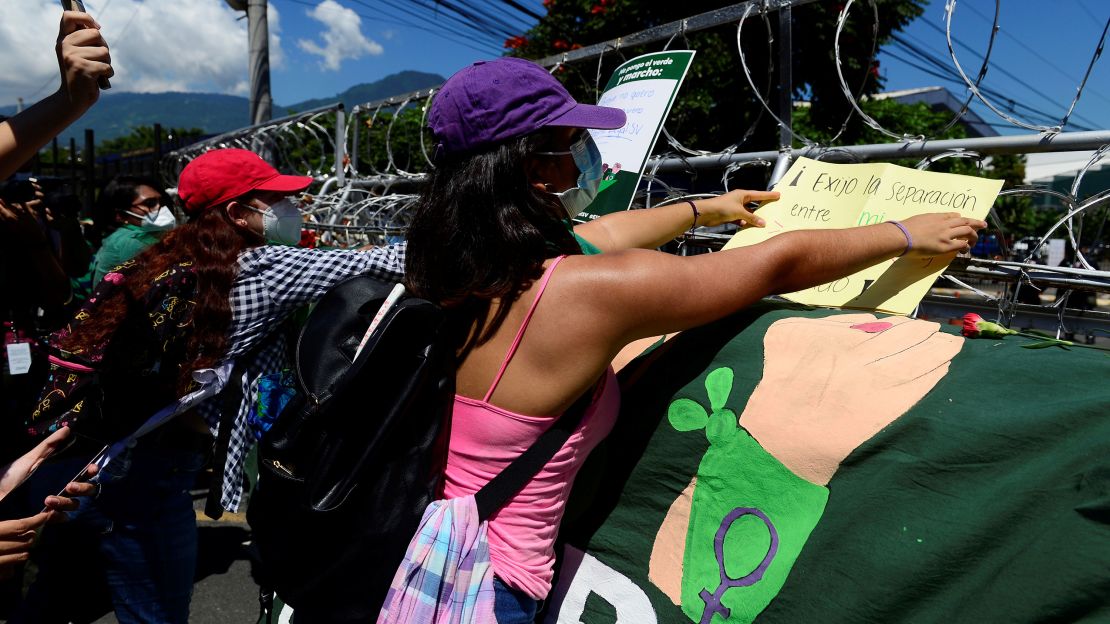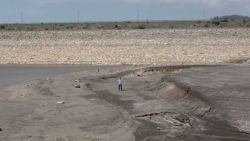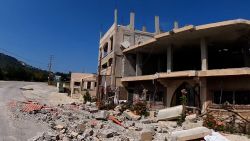Thousands marched for abortion rights across Latin America on Tuesday, holding placards and banners that read “It is my right to decide” and “legal abortion for health and life,” as they demanded reproductive freedoms in a region known for some of the world’s strictest anti-abortion laws.
Several Latin American nations still ban abortion, including El Salvador, which has sentenced some women to up to 40 years in prison. In a number of high-profile cases, women have been convicted and imprisoned after suffering miscarriages and stillbirths.
The rallies, held on International Safe Abortion Day, were aimed at pressuring lawmakers to ease punitive abortion laws, with demonstrators taking to the streets in countries including El Salvador, Chile and Mexico.
In El Salvador – where abortions are illegal even when the pregnancy poses a risk to the mother, and in cases of rape and incest – protesters held signs calling for safe and free legal abortions as they made their way to Congress.
Salvadoran President Nayib Bukele has ruled out any reform to abortion laws as part of the controversial constitutional changes planned by his government.
But Morena Herrera, a prominent Salvadoran feminist, said that such a move did not require constitutional reform, according to Reuters.
“We are asking for minimum measures to add to the Penal Code to guarantee the life and integrity of women,” she said.

Reform is happening
Changes to some abortion laws are happening in the largely Roman Catholic region. Last year, Argentina voted to legalize abortion at up to 14 weeks into pregnancy, after previously imposing prison sentences of up to 15 years except in cases of rape or danger to the mother’s health.
On Tuesday, Chilean lawmakers were one step closer to easing the country’s tight restrictions after the lower Chamber of Deputies approved a plan to debate a bill expanding abortion access, according to an official press release.
The bill proposes decriminalizing abortion in the first 14 weeks of pregnancy – a major step for one of the region’s most conservative countries.
Chile’s strict abortion laws forbid abortion unless the pregnancy results from rape, if the fetus has a deadly congenital disability, or if a woman’s life is at risk.
The bill now has to be debated by the legislature’s Commission for Women and Gender Equity before receiving final approval by the Chamber of Deputies and passing to the country’s Senate to be voted into law.
The Chilean legislative moves follow a landmark ruling earlier this month from Mexico’s Supreme Court, which declared that penalizing abortions was unconstitutional. That decision paves the way for legalizing abortion throughout Mexico.
On Tuesday, an abortion rally in Mexico City saw clashes between protesters and police officers, injuring 37 people, according to the city government.
The rally, which demanded reproductive rights and was organized by feminist groups, started in the afternoon from two different points and marched to the capital’s main square. The protest was guarded by the city’s policewomen.
Mexican authorities placed protective fences around key buildings and monuments ahead of the march. The clashes took place when some protesters vandalized some structures.
Among the injured were nine civilians, a public servant and 27 female members of the police force.


















